Iran Hardliners Launch Petition Over Politician's Anti-IRGC Remarks

A petition by the hardline news website Fars has collected over 50,000 signatures for the prosecution of former lawmaker Faezeh Hashemi Rafsanjani for remarks against the IRGC.

A petition by the hardline news website Fars has collected over 50,000 signatures for the prosecution of former lawmaker Faezeh Hashemi Rafsanjani for remarks against the IRGC.
Hashemi, who is the daughter of former president Akbar Hashemi Rafsanjani and a pro-reform politician, recently said that Iran’s Revolutionary Guard (IRGC) (FTO), arguing that its removal is not in Iran's interest.
The petition page of the Fars news agency, affiliated to the IRGC, is designed with a maximum target of 50,000 signatures that Fars claims it would be enough to make the case considered for a public discussion in Iran’s parliament. The petition for Hashemi’s persecution has collected nearly 53,000 signatures in one day.
Echoing similar sentiments, conservative politician Hamidreza Taraghi, a senior member of Motalefeh (the Islamic Coalition party), also told the news agency that prosecution of Hashemi is a public demand now and “people are completely dissatisfied with and complain about her repeated stances”.
Taraghi added that when such remarks are not dealt with seriously, Ali Motahari, a former deputy speaker of the parliament, dares to make “nonsensical” comments about the country’s nuclear program “in order to be seen”.
Motahari had said on Sunday that Iran’s aim from the beginning was to produce nuclear weapons as a deterrent force, but it failed to keep the project secret after the Mojahedin Khalq (MEK) opposition group revealed the program to the world.
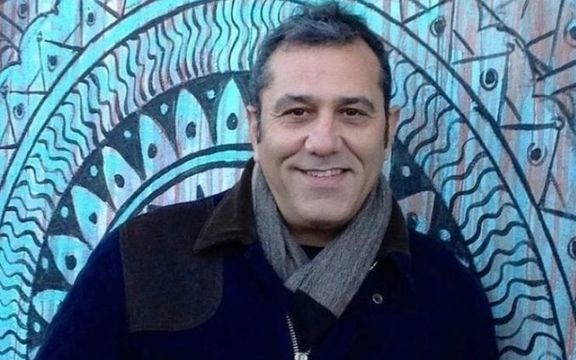
Following calls by the US officials for the release of American Iranian dual national Emad Sharghi, an Iranian hardliner website has published an article emphasizing that he is a spy.
Fars News, with links to Iran’s Revolutionary Guards, published the piece on Monday, two days after US Secretary of State Antony Blinken urged the Islamic Republic to release Sharghi and stop its policy of holding people as political pawns.
In a tweet on Saturday, Blinken called on Iran to stop this “inhumane practice” saying, “For four years, the Shargi (Sharghi) family has waited anxiously for the Iranian government to release Emad”.
Special Envoy for Iran Robert Malley and Republican Senator Marco Rubio also twitted for his release, noting that he remains unjustly detained in the Evin Prison under false charges.
Fars News said, “Sharqi's family and the US government must answer why he had documents at the time of his arrest that showed his interest in spying on the Iranian military”.
It added that his business activities were a cover for espionage, “especially in the field of helicopter warfare”, claiming that “he had gathered information about the helicopter industry with the help of his accomplices”.
The article speculated that he probably sought to disrupt the supply chain for helicopter repairs.
The 56-year-old businessman was arrested on December 6, 2020. According to reports, he has been sentenced to ten years in prison on charges of espionage and collecting military.
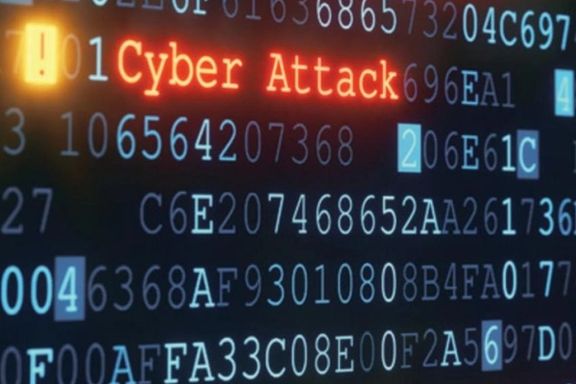
Over 100 Iranian state-owned and private websites were targeted by a cyberattack and their systems’ data were stolen, the government confirmed on Sunday.
Claiming responsibility for the attack, the hacking group "Uprising till Overthrow" sent pictures and videos to Iran International showing that about 50 domains of the Agriculture Ministry and its affiliated offices have been hacked.
A deputy director for the security of Iran’s information center, Meysam Maghsoudi Goudarzi, said late on Sunday that a security loophole in a software frequently used by governmental organizations made the large-scale cyberattack possible.
He said that the attack was “neutralized” in its early stages, noting that “The hackers obtained information from the websites but did not obtain the basic information of these government centers”.
Maghsoudi Goudarzi also claimed that no damage was done to the infrastructures of the organizations, adding that “This cyberattack was designed like a 'time bomb’ to attack more than 100 [online] services of the country at a certain time and date to disrupt their activities”.
He said the IPs used for the cyberattack belonged to the Netherlands, Britain and the United States, and that due legal action will be taken in the future.
In mid-March, the portal of the Ministry of Culture and Islamic Guidance (Ershad) and its affiliated websites were hit by a cyberattack.
Hackers posted on the website photos of leaders of the Mujahedin-e Khalq (MEK) opposition group, Maryam and Masoud Rajavi, as well as a photo of Supreme Leader Ali Khamenei with a large red X, drawn on his face.
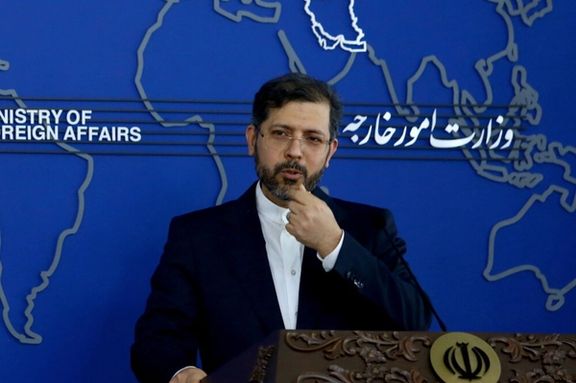
The foreign ministry in Tehran has confirmed that Iran and Saudi Arabia held a fifth round of "positive" talks in Baghdad last Thursday on normalizing bilateral ties.
"The fifth round of talks between Saudi Arabia and Tehran were held in Iraq and the talks were progressive and positive," foreign ministry spokesman Saeed Khatibzadeh told a televised weekly news conference.
The resumption of talks come as Iran’s nuclear negotiations with the United States came to a standstill in March, after Tehran demanded the removal of its Revolutionary Guard from the US list of terrorist organizations. The US in return has asked for a wider discussion of Iran’s destabilizing role in the region.
Predominantly Sunni Muslim Saudi Arabia and Shi'ite Iran, which are locked in proxy conflicts across the Middle East, started direct talks last year to try to contain tensions.
But Iran suspended the talks in March without giving a reason after Saudi Arabia executed 81 men in its biggest mass execution in decades. Tehran condemned the executions that activists said included 41 Shi'ite Muslims.
On Sunday, Iraq's Foreign Minister Fouad Hussein said Baghdad would host a new round of talks.
Khatibzadeh said "initial talks were underway between Tehran and Riyadh on sending 40,000 Iranian pilgrims to the haj in Mecca" this year.
Riyadh severed ties with Tehran in January 2016 after Iranian protesters stormed the Saudi embassy in the Tehran following the execution of a Shi'ite cleric in Saudi Arabia.
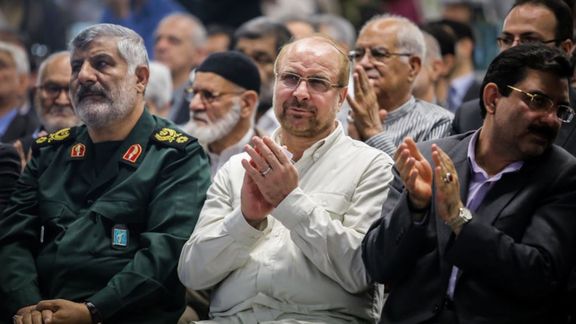
The speaker of Iran’s parliament, who faces a scandal related to his family’s luxury shopping abroad, told the government that people face financial hardships.
Mohammad Bagher Ghalibaf in a meeting with government representatives on Sunday said, “Rising prices in the country have become indefensible,” and “people face hardship.”
A scandal broke on April 20 when videos and images emerged that Ghalibaf’s wife and daughter visited Turkey and allegedly bought luxury items for the baby his daughter expects. His son and chief aide tried to smooth things over by apologizing but the Speaker remained silent.
A journalist also made a more serious allegation that the family bought two luxury apartments while in Istanbul for $1.6 million.
Many politicians and ordinary Iranians have criticized Ghalibaf, some even calling for his resignation as he and other top officials constantly speak of ‘resistance economy’ and people’s resilience in the face of United States’ sanctions, but their families take foreign trips for shopping.
The scandal has also revealed a rift among ‘revolutionary’ hardliners or “principlists” as some like to call themselves. Reports in the media say that ultra-hardliners in the parliament representing the Paydari group may have even been involved in exposing the Ghalibaf family’s trip to Turkey.
Vahid Ashtari, a journalist who first revealed the scandal, is considered a “principlist” who say they campaign for justice.
But other hardliners have come to Ghalibaf’s defense, attacking his critics. One hardliner quipped that “The enemy has planned to weaken unity among government institutions,” a reference that conservatives and hardliners control both the presidency and the legislature. He added that “The revolutionary forces are more alert than to be deceived by these kinds of conspiracies.”
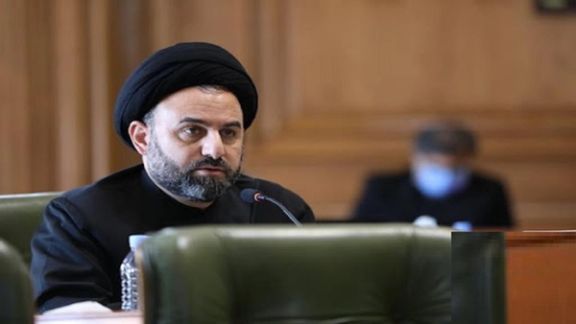
Mohammad Aghamiri, another hardliner, tried to defend Ghalibaf by saying that his family went to Turkey “with four bags and returned with five,” while Ashtari insists he has evidence the family returned with more than 20 pieces of luggage.
Aghamiri went on to say that there is nothing wrong with a young enthusiastic couple travelling to Turkey “and buying a few things that were on sale.”
However, critics ask how Ghalibaf’s family can afford a foreign trip and luxury shopping when the Iranian currency has substantially dropped, and many people do not have enough food to eat.
Ghalibaf has been involved in numerous financial corruption cases over the years, especially during his tenure as Tehran mayor from 2005-2017. As a former Revolutionary Guard general, in many of his corruption cases there is a thread connecting to other high ranking IRGC figures, including Qasem Soleimani, the Qods Force commander killed in a US drone strike in Baghdad in 2020.
Fars news agency affiliated with the IRGC attacked Vahid Ashtari and others who have exposed and pursued Ghalibaf’s scandal. “Psychologists believe that an identity crisis and an urge to be noticed…” leads to “deviations”, it said.
The ultra-hardliner Kayhan newspaper financed by Supreme Leader Ali Khamenei said that the scandal is the creation of “anti-revolutionaries abroad”, reformists and “deviant forces”, an indirect reference to followers of former president Mahmoud Ahmadinejad. The Paydari group in parliament is made up of mostly former Ahmadinejad officials, although the former president has not spoken about the scandal.
Some lawmakers have also insisted that the revelations about Ghalibaf are a “political and security project” aimed at damaging his reputation and political standing.
Ashtari has responded on Twitter, telling Ghalibaf’s supporters to end duplicity in their lives “and everything will be solved.”
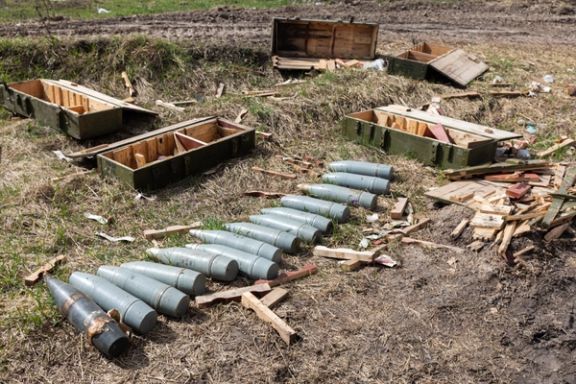
The Russian embassy in Tehran has denied that Iranian networks help smuggle munitions and military hardware sourced from Iraq to Russia for the war in Ukraine.
The embassy said in a tweet on Sunday, “The information that appeared in some media about the supply of Iranian weapons to Russia is fake and does not correspond with reality”.
The Guardian had quoted Iranian-backed Iraqi militias and regional intelligence services on April 12 as saying that undercover networks were used in the past month to supply rocket-propelled grenades (RPGs), anti-tank missiles and Brazilian-designed rocket launcher systems to Russia.
The embassy rejected the report about 12 days later probably because reports have emerged saying that flights by Iranian military-affiliated planes to and from Russia have increased since the beginning of the Russian invasion of Ukraine on February 24.
The Iranian embassy in London also dismissed the Guardian article as “baseless storytelling”.
A source who helped organize the transport said the Iranian authorities had also donated an Iranian-made Bavar 373 missile system, similar to Russia’s S-300, to Moscow. Tehran also returned an S-300 to Russia, the source said.
Earlier in April, The Telegraph reported that Russia was running out of some weapons because critical parts were made in Ukraine, including Kh-55 nuclear capable cruise missiles that are also used by Iran and China.